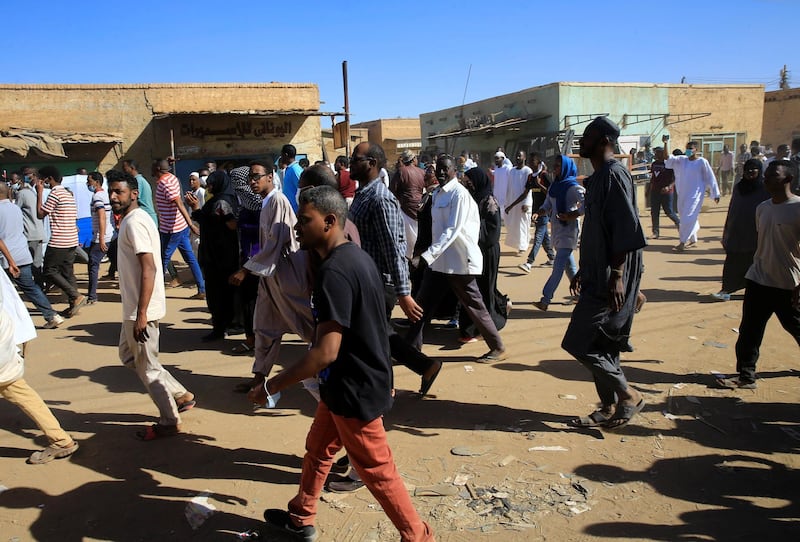Sudan’s political crisis shows no sign of easing as anti-government protests enter their fourth week, with activists calling for further marches despite a violent crackdown on demonstrations.
The Sudanese Professionals Association, which has been organising protests, called for a march in the capital Khartoum on Sunday after police fired tear gas to disperse protesters in Khartoum and its twin city Omdurman after midday prayers on Friday.
Protesters chanting “peaceful, peaceful against the thieves” have been met with live bullets fired by security forces. Since protests began on December 19, more than 40 people have been killed and over 1000 arrested, according to Amnesty International.
Protests on Wednesday in Omdurman were particularly violent, with police firing live ammunition in the city’s main hospital, where operating theatres were flooded with tear gas. The police were looking for protesters earlier in the day, activists said.
Disturbing footage from Sudan, showing persons — allegedly Central Reserve Police (CRP) — firing into the premises of one of Omdurman's main hospitals. It was filmed from here: https://t.co/NkEFPLVaob. #مدن_السـودان_تنتفض (h/t @jehannehenry). pic.twitter.com/9AespFJOI3
— Christiaan Triebert (@trbrtc) January 9, 2019
Amnesty International called for an investigation into what it described as a “horrific attack.”
“The Government of Sudan must also take immediate action to stop the practice of shooting protesters and respect the Sudanese people’s right to freedom of expression,” said Sarah Jackson, the human rights group’s Deputy Director for East Africa.
But as security forces have cracked down on protesters, key regional powers are maintaining their support for long-standing autocrat Al Bashir.
"Egypt fully supports the security and stability of Sudan, which is integral to Egypt's national security," President Abdel Fattah El-Sisi told an aide to Al Bashir who visited Cairo last week.
Qatar's ruler, Sheikh Tamim bin Hamad Al Thani, called Al Bashir shortly after the protests began to offer his support.
_______________
Read more:
Sudan's Bashir resists demands to step down amid protests
[ Sudanese lose hope for justice for shot and detained protesters ]
Persistent protests testify to deep-rooted anger in Sudan
_______________
On Wednesday, Al Bashir gave a speech thanking his supporters and allies in which he warned that instability in Sudan could produce another conflict like those which afflict Syria and Yemen. “Those who are plotting against Sudan are very upset that we’re still standing despite their conspiracies,” he said.
In December, the price of bread rose from one Sudanese pound to three (from about 7 fils to 23), as the government cut subsidies. Soon afterwards angry demonstrators began calling for Al Bashir to step down.
The current protests are the largest since the 75-year-old Al Bashir seized power in a 1989 military coup. He is wanted by the International Criminal Court for war crimes and other abuses against civilians during the Darfur conflict.
Since the secession of South Sudan in 2011, Khartoum lost three quarters of its oil revenue, crippling an economy already wracked by 20 years of US sanctions.





